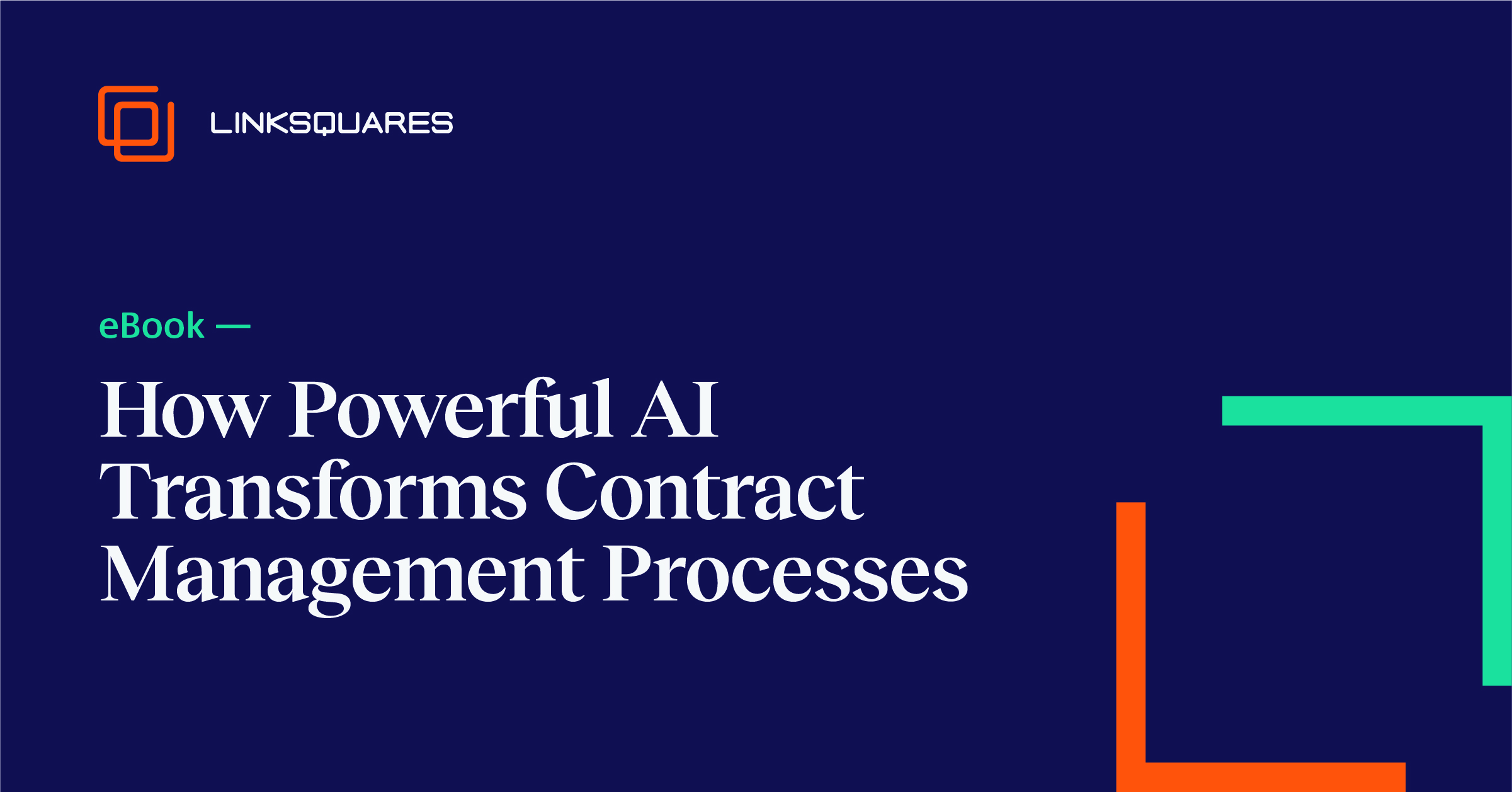There is a common misconception that all artificial intelligence (AI) will replace humans. While in some cases there may be truth to it, AI-powered legal tools are not going to replace the people on your legal team. They are, however, going to empower you to have a more substantial impact on the business. To explain this further, let’s first take a look at how AI-powered contract lifecycle management (CLM) software is created.
AI Process When Creating an AI-powered CLM
Many people evaluating AI-powered CLM solutions do not fully understand the AI process, also known as machine learning. There is a great article by Vincent Granville, The Machine Learning Process in 7 Steps that highlights the key stages of developing an AI process:
1. Problem Statement: Establishing and detailing the problem that is being solved with AI, what features are you seeking to create? What is the data that is available, how much of it is needed for an accurate AI model, and where is that data located?
2. Goals: What type of analysis is involved? Who will be the end-users of this technology?
3. Data Collection: Defining the data to be used and considering the capacity, privacy, and security issues involved.
4. Exploratory Data Analysis (EDA): Determining what to do with missing data, outliers, duplicates. This is where the preprocessing of the data happens.
5. AI Modeling: Choosing, training, testing, and refining of the most accurate machine learning algorithms which leads to the most precise predictive models.
6. End-User Platform: Visualizing the data, such as through dashboards.
7. Maintenance: Updating the AI model as needed due to changes, such as with data.
The three main areas of value are your ability to:
-
Extract the AI output from the machine learning algorithm
-
Analyze any hidden patterns
-
Visualize the results
This illustrates how valuable humans are in this process. The results from the analysis and interpretation of the hidden patterns found by the AI alone are useless without proper visualization and correlation to your business and goals.
A human is needed in order to create meaningful and insightful visuals to tell the data story and tie it to your business. Without this understanding, all of the other steps have no purpose. It’s the legal team’s job to visualize the results and to tell your data story. That’s your value (and it can not be understated.) To hear from LinkSquares CEO about our data journey, check out this post.
"Present fears are less than horrible imaginings" - William Shakespeare
This quote is perfect when dreading something that appears very difficult. It is true that situations are rarely as awful as we envision them to be. Legal teams may imagine the implementation and adoption of an AI-powered CLM solution to be a disruptive and confusing disaster that results in valued people losing their jobs to a machine.
In reality, with proper instruction and customized training, implementing an AI-powered CLM solution brings efficiency, freeing up time for more complex and meaningful work that cannot be undertaken by a machine.
This can then lead to becoming more profitable and more competitive in the market. If you’d like to learn more, contact LinkSquares today.

Subscribe to the LinkSquares Blog
Stay up to date on best practices for GCs and legal teams, current events, legal tech, and more.


-3.png?width=575&name=Copy%20of%20General_Header%20(1)-3.png)
